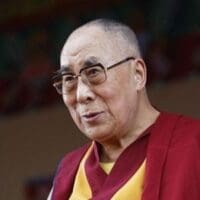Overview
We will introduce the central themes of this meeting, discussing from scientific and philosophical perspectives the key questions in the study of perception, concepts and the self that will be considered this week. We will discuss the constructive nature of cognition, the possibility and possible nature of preconceptual cognition, and distinctions among different concepts of the self as articulated both in the Western philosophical and scientific and Buddhist traditions, as well as the origins of these concepts in our biology. We will discuss the possibility of neural and cognitive plasticity in each of these domains and, where there is evidence, the impact of different forms of contemplative training on these processes will be reviewed. We will attend to the variety of methodologies for studying these phenomena, the potential for collaboration between the Tibetan and Western traditions, and the implications of these questions for ethical development and for education in secular ethics.
- Dialogue 3019 sessions
- December 14, 2015Sera Monastery, Bylakuppe, India


